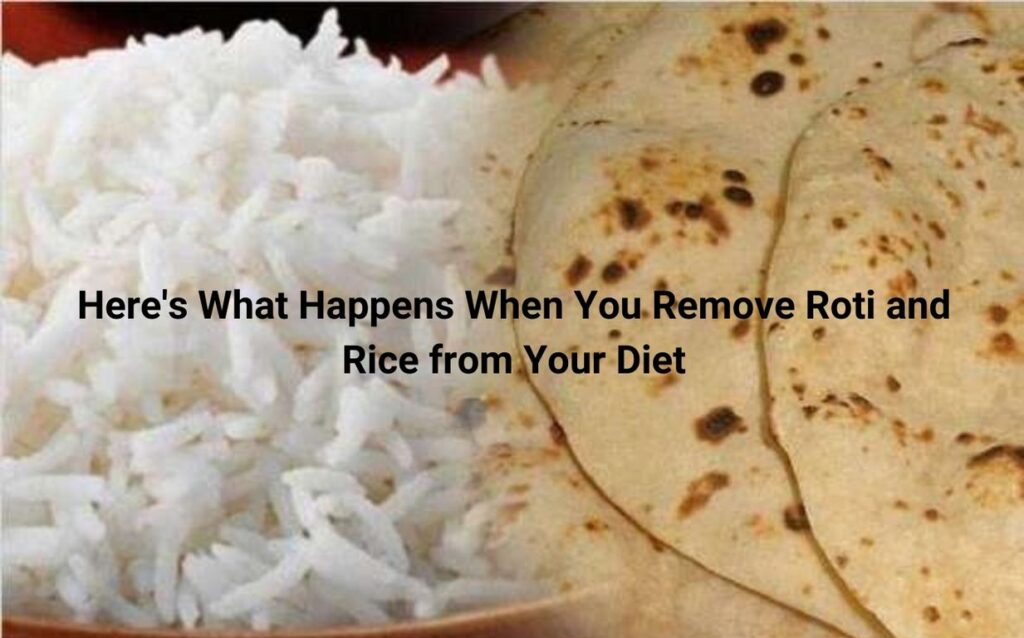The Benefits of Removing Roti and Rice from Your Diet: Alternatives and Healthier Choices for Better Diabetes Control

The Benefits of Removing Roti and Rice from Your Diet: Alternatives and Healthier Choices for Better Diabetes Control
In today’s fast-paced life, many individuals have grown bored of their usual home-cooked meals. Seeking a change, one office-goer decided to explore the food stalls near her workplace. The first stall offered noodles and Manchurian, followed by another serving hot vada-pav. Wanting to avoid an overload of carbohydrates, she moved on to a stall selling fried rice, cooked in copious amounts of oil, which she immediately deemed unhealthy.
The variety of food at every stall seemed to revolve around carbohydrates whether it was naan, puri, kachori, or fried potatoes. There was little in the way of proteins.
The Link Between Weight, Diet, and Sleep
She soon realized that while many people rely heavily on carbohydrate-rich foods like rice, chapati, idli, dosa, and upma, these foods primarily contain high amounts of carbohydrates. For those concerned with health, these staples may not be the best choice.
According to research by the Indian Council of Medical Research (ICMR), reducing carbohydrate intake can significantly lower the chances of developing Type 2 diabetes. A survey conducted on 18,090 individuals across India revealed that excessive carbohydrate consumption was a major contributing factor to diabetes and obesity.
In India, rice and chapati are integral to daily meals. While northern regions consume a lot of roti and potatoes, southern India is more likely to include rice-based dishes like pulao and biryani. Foods like idli, dosa, upma, and puri are common in many households but are high in carbohydrates.
The Need for a Shift in Dietary Habits
Many people find it hard to imagine a meal without rice or chapati, but experts suggest a shift toward a more balanced intake. Reducing carbohydrates and increasing protein and fiber can help maintain a healthy weight and control diabetes.
According to a nutrition, it is essential to understand that carbohydrates, while necessary for energy, should be consumed in moderation. Replacing refined carbohydrates (such as those in white bread and fried snacks) with complex carbs (like millets and whole grains) can provide health benefits. Complex carbohydrates are digested more slowly, helping to maintain steady blood sugar levels.
Healthy Alternatives for Breakfast and Lunch
For breakfast, consider switching traditional rice idli for millet-based idli or a semolina-free upma. Instead of regular bread, try whole grains like jowar, bajra, or nachani. Including boiled eggs or a vegetable-rich salad alongside fruit can offer a balanced meal to start your day.
For lunch, while rice and chapati are staples, reducing their portion sizes and adding protein-rich foods like legumes, paneer, or chicken can help create a healthier plate. A bowl of vegetable salad, yogurt, and a serving of beans or peas are ideal accompaniments.
Dinner Suggestions
Experts advise avoiding rice and chapati altogether for dinner. A lighter meal with soup or steamed vegetables is better suited for digestion at night. This can aid in better sleep and overall health.
Impact of Diet on Diabetes in India
India has seen a rising number of diabetes cases, with over 74 million people affected by the disease. Research suggests that by 2045, the number could rise to 103.5 million, which highlights the need for dietary interventions to combat the growing health crisis.
Key Dietary Changes to Consider:
- Carbohydrate Intake: Reducing carbs to 54-57% of daily intake, while increasing protein to 16-20%, can help maintain a healthy diet.
- Fats: Incorporating healthier fats such as those from olive oil, peanuts, and seeds can improve overall health.
- Whole Grains Over Refined Carbs: Opt for whole grains like brown rice, millet, and quinoa instead of white rice or refined flour products.
Conclusion: The Need for Lifestyle Changes
Making such changes might seem difficult, especially given the strong attachment to traditional meals like rice and chapati. However, experts suggest that adopting the dietary habits of previous generations—using locally available grains and fresh, natural foods—can significantly improve health outcomes. Reducing processed foods and sugary snacks can also help in managing weight and preventing chronic conditions like diabetes.
By adjusting meal portions, replacing refined carbohydrates with healthier alternatives, and balancing protein intake, individuals can take significant strides towards better health.
Disclaimer: The information provided in this article is intended for general informational purposes only and should not be considered as medical advice. Always consult with a healthcare professional or a qualified nutritionist before making any significant changes to your diet or lifestyle.












